The gardens are open daily from 11.00 – 4.30
Spring is in full bloom!
The Gardens
The gardens cover 70 acres and contain one of the very best private collections of plants, shrubs and trees in the UK. There are miles of paths to explore and 131 Champion Trees to spot. We hold National Collections of Acers, Betulas and Zelkovas amidst the estimated 5000 specimens here. The main areas of the gardens are outlined below.
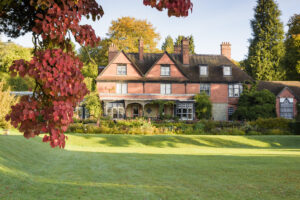 Hergest Croft
Hergest Croft
The rolling lawn – once a double tennis court – is bordered by trees and shrubs selected for their attractive foliage. Dominant are two mighty beech trees – one weeping and one cut-leaf – that represent Dorothy and Willie Banks who built the Croft in 1896 and set out this part of the garden.
There is much to explore here: the display in the Conservatory, the Slate Garden, the rockery and the extensive collection of camellias, hydrangeas, peonies, philadelphus, acers amongst many other species to be found along the various gravelled path.
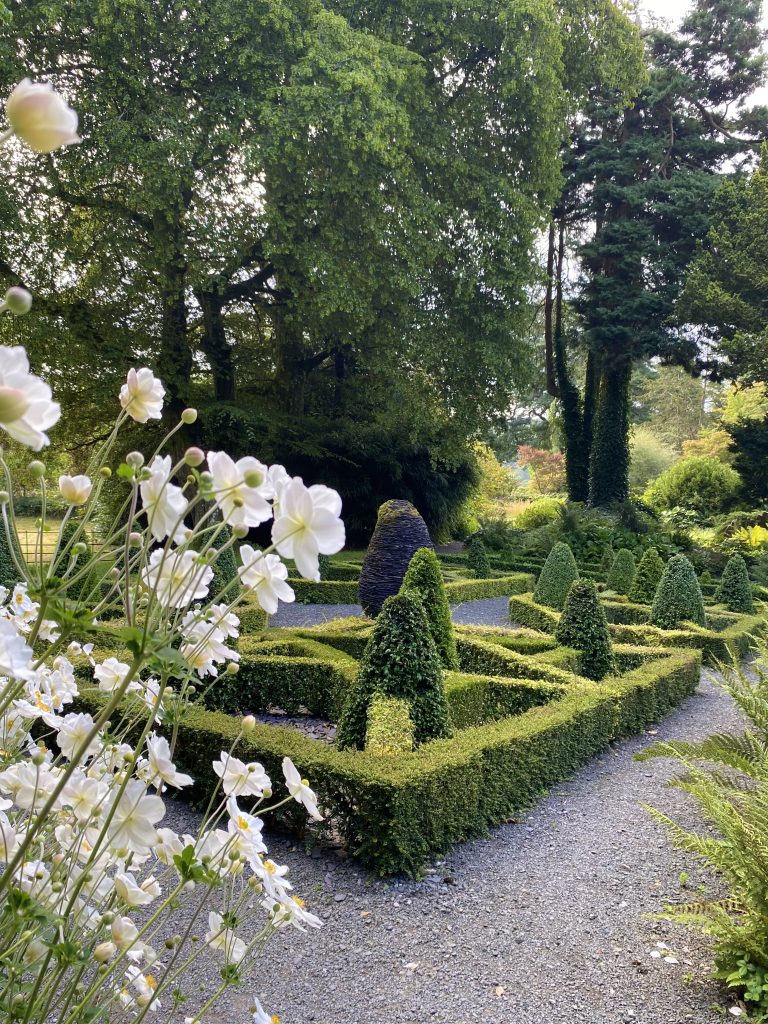
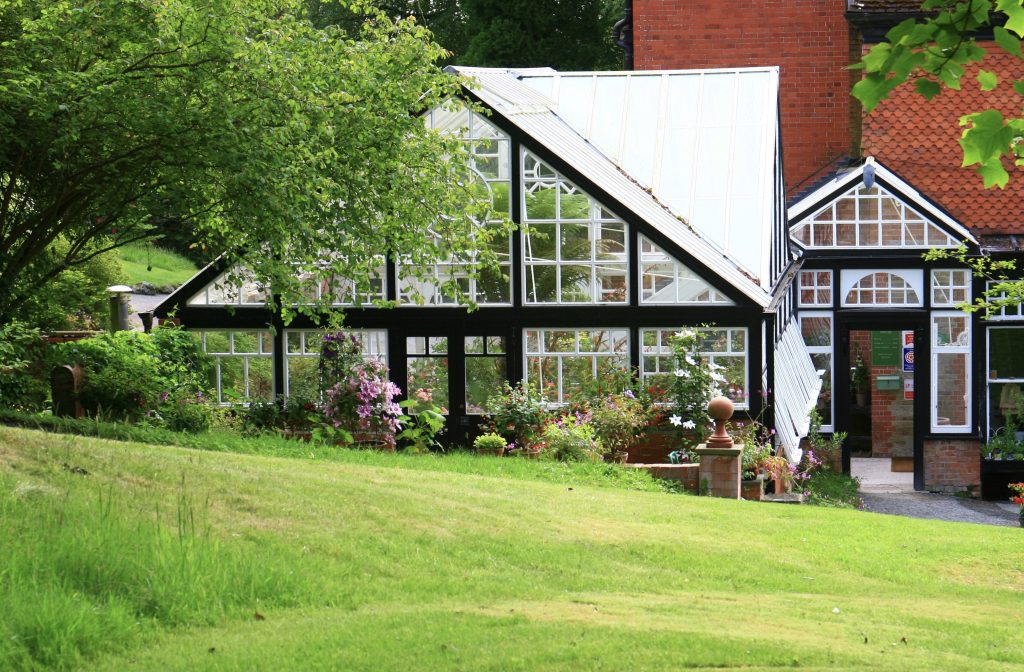
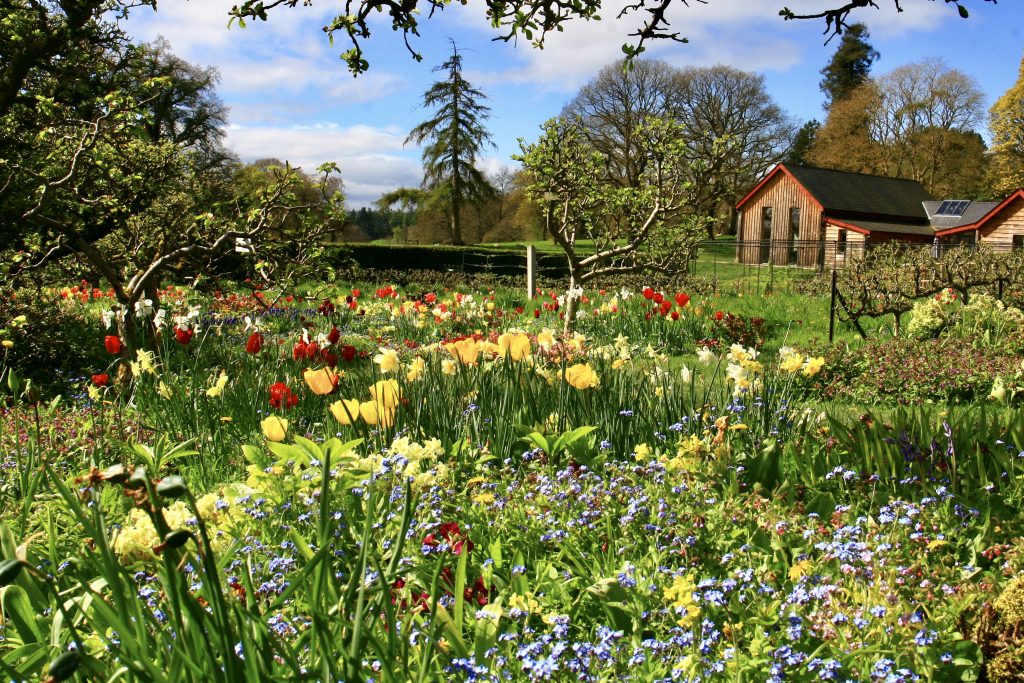 The Orchard and Kitchen Garden
The Orchard and Kitchen Garden
A short walk through the orchard brings you to the Kitchen Garden where the Spring Border, planted under an avenue of ancient apple trees, heralds the start of the garden year with a riot of colour. As we move towards summer, the long herbaceous border takes the limelight,
along with old-fashioned roses and a wild flower meadow, and the traditional vegetable garden too.
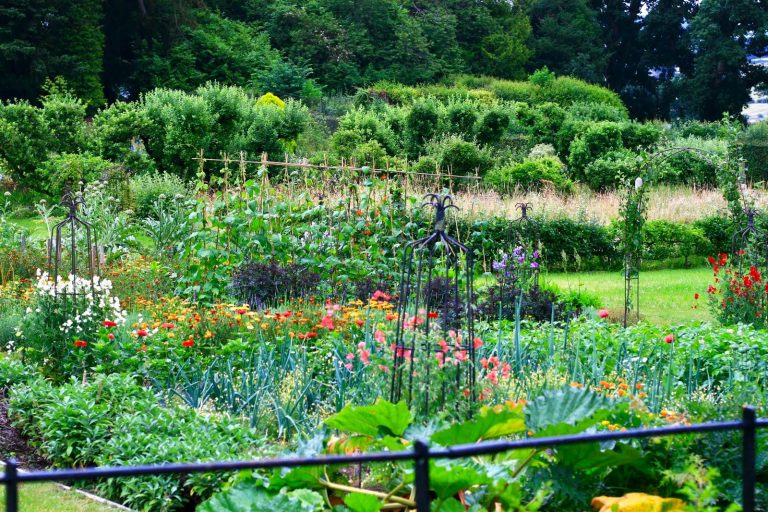
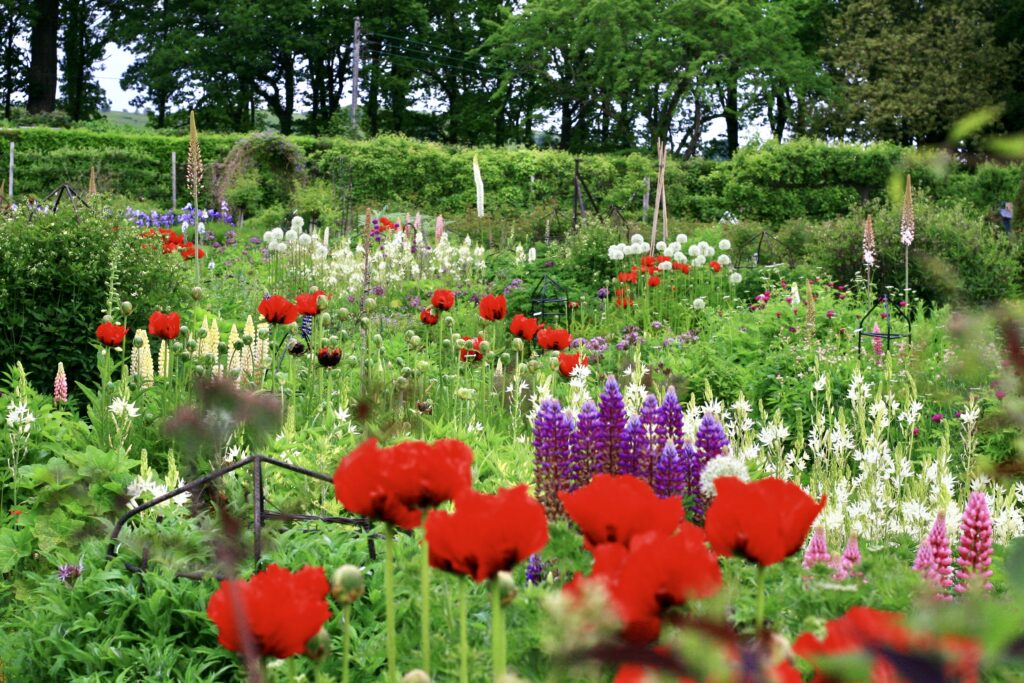
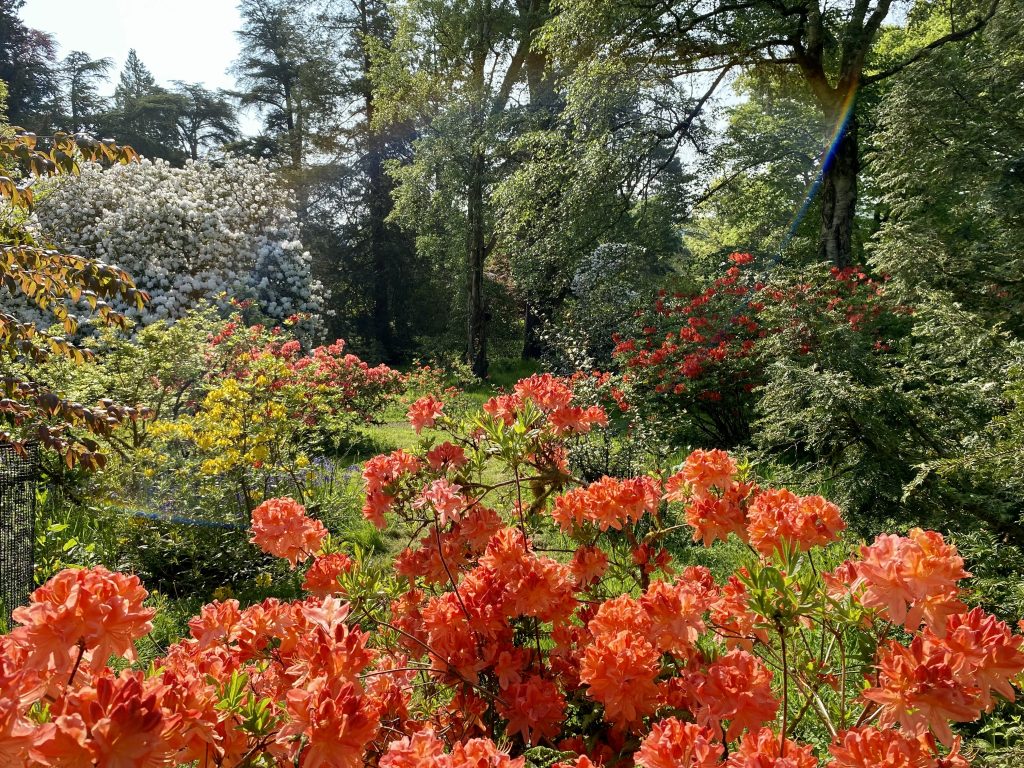 The Azalea Garden
The Azalea Garden
The Azalea Garden is dominated by an avenue of massive conifers that marches up the hill from the Wembley Gate. Champion Trees abound, including one of the UK’s largest specimens of the Paper Handkerchief tree, Davidia involucrata. Daffodils carpet the area in spring, soon followed by a blaze of colour of numerous azalea cultivars, as well as magnolias and an extensive range of birch species.
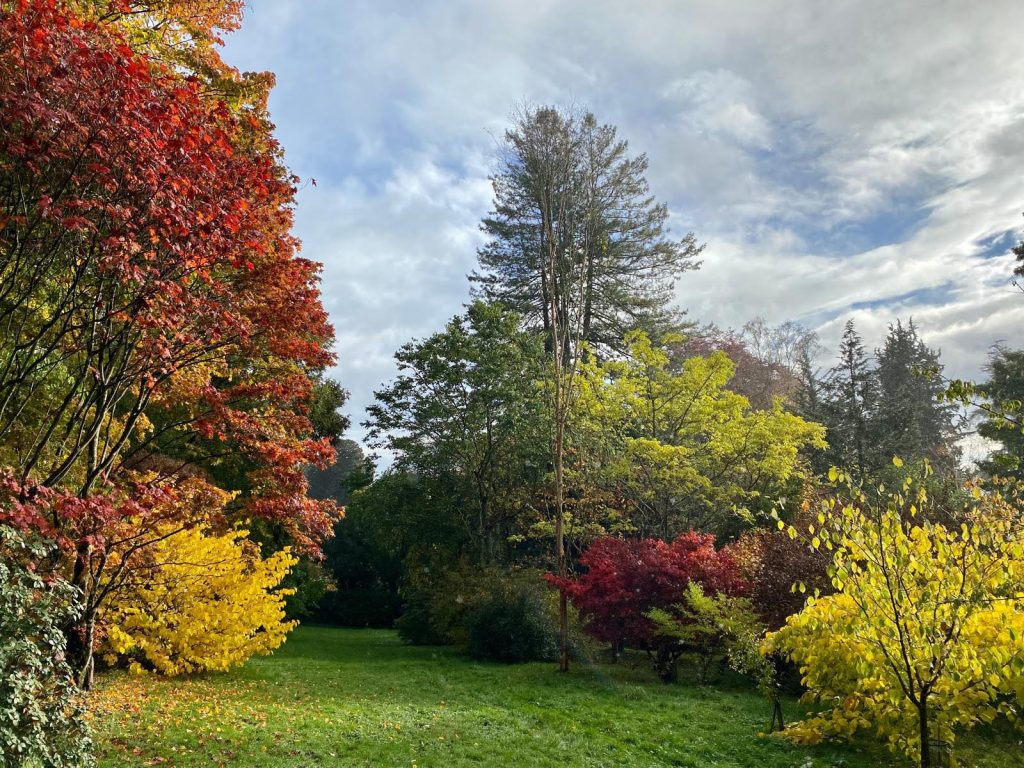 The Maple Grove
The Maple Grove
Walking uphill beyond the Azalea Garden you enter a mass of specimen trees. From 1985 this area was planted with new and re-introduced species following the re-opening of China to western plant collectors. Many of these trees are amongst the only examples of their species growing in the UK. Unusual maple, birch and sorbus varieties abound.
From the top of the grove, spectacular views towards the Malvern Hills can be enjoyed while sitting on the Millennium Bench carved by Jim Partridge from an oak that fell in the Park in 2000.
The Park & Haywood Common
The exotic planting of the gardens melts imperceptibly into open parkland as you follow the route to Park Wood. Sheep graze beneath many mature broad-leaved trees. These are loosely arranged in single genus groups including ash, beech, oak, horse-chestnut and maple.
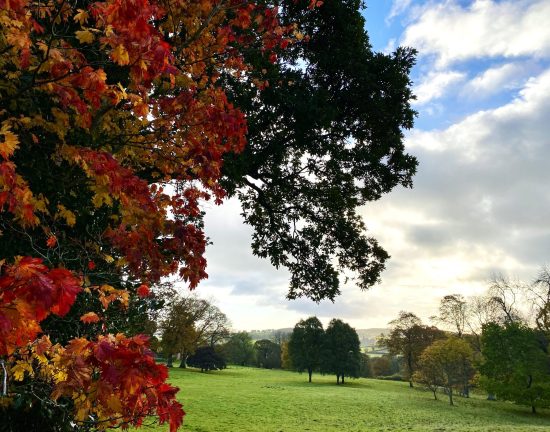
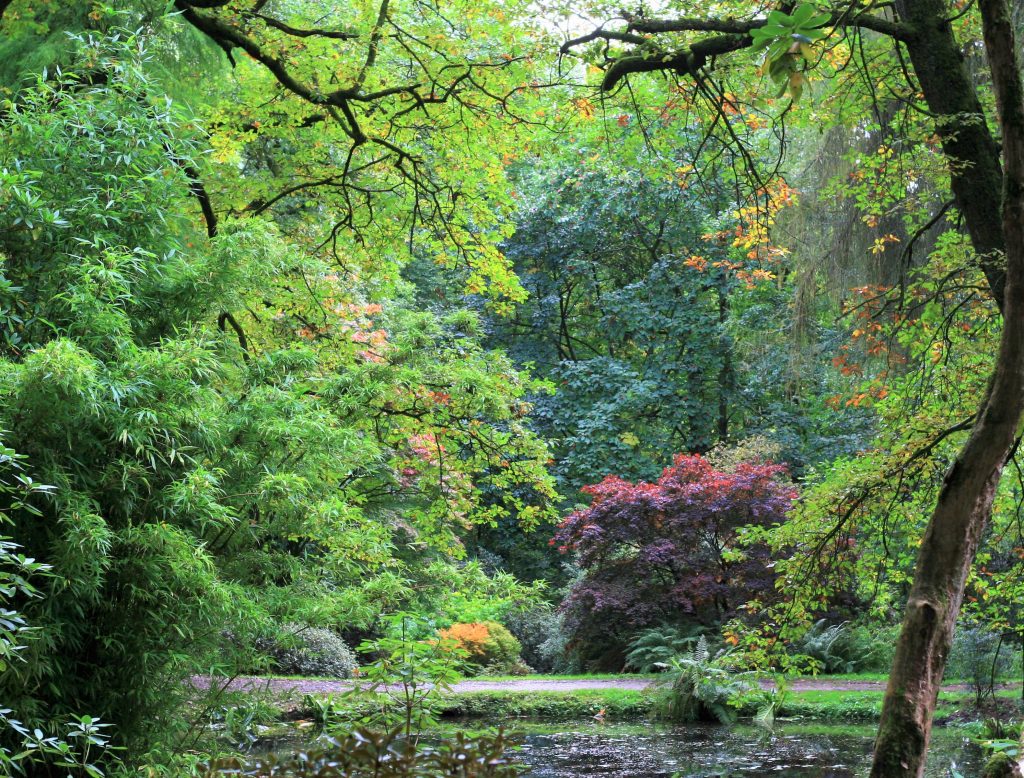 Park Wood
Park Wood
It is a 20 minute walk from Hergest Croft to the heart of Park Wood across the Park, Haywood Common and then the oak and beech outskirts.
Hidden in the midst of these lies a secluded valley that brims with giant rhododendrons, many of which are stunningly reflected in the large pond on a bright day. The benign microclimate enables many exotic species to thrive here, creating a veritable Himalayan scene.
130 Champion Trees
Not to be missed are two champion specimens of Davidia involucrata, better known as the Paper Handkerchief tree for its plentiful flowers reflecting its name. Other favourites include the Arbutus menziesii – or Madrona Tree – which has very striking bark, and the Zelkova serrata, shown here.
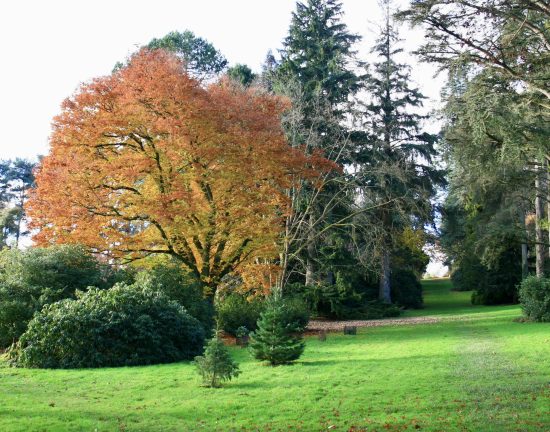
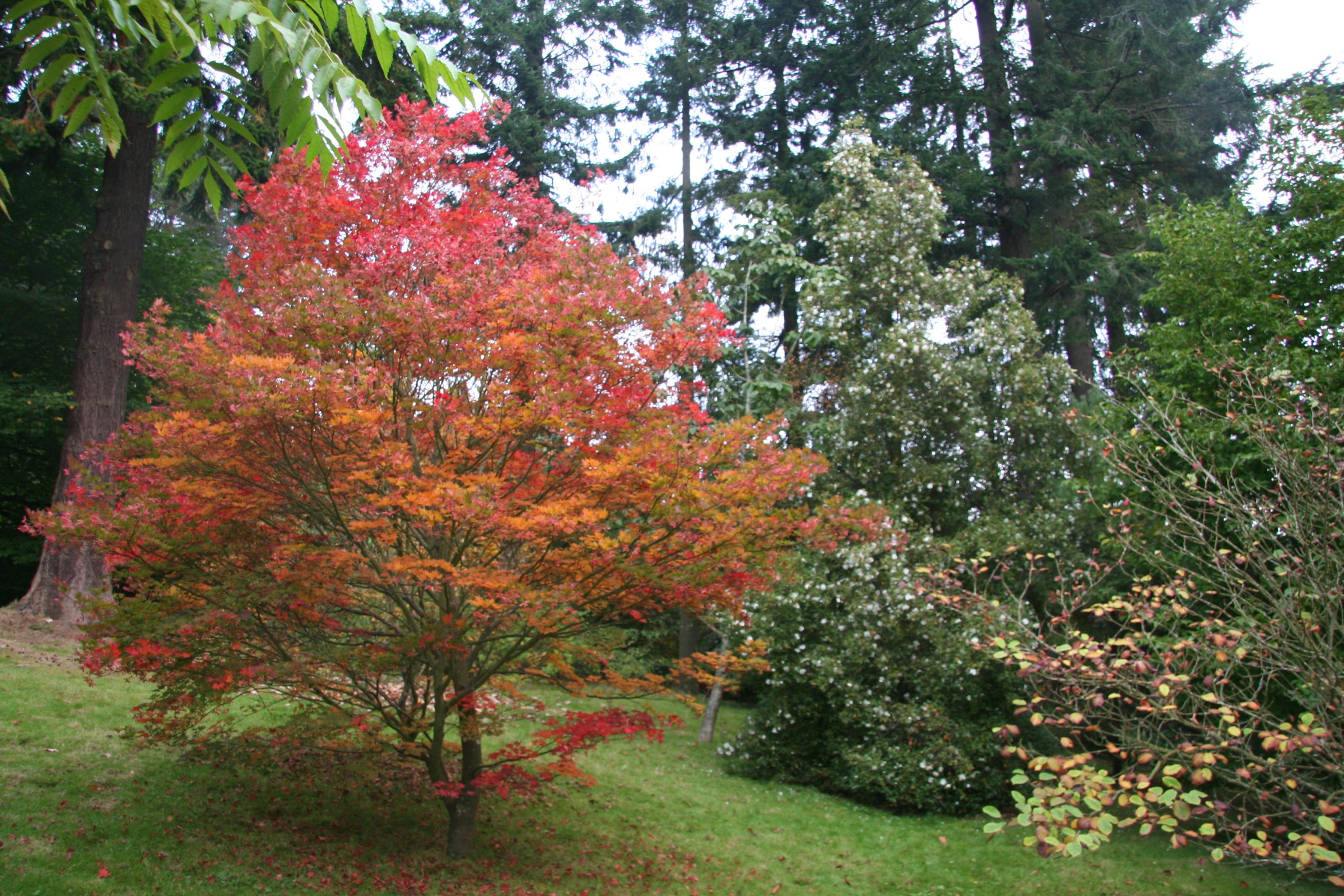 National Collections
National Collections
Under the auspices of Plant Heritage, a plant conservation charity, we hold national collections of Acers (of which we have almost 500 specimens), Betula (300 specimens) and Zelkova. You will find very many rare and unusual varieties here. Elizabeth Banks has recently been appointed a Vice President of Plant Heritage in recognition of her distinguished service to the charity and her wealth of horticultural experience.